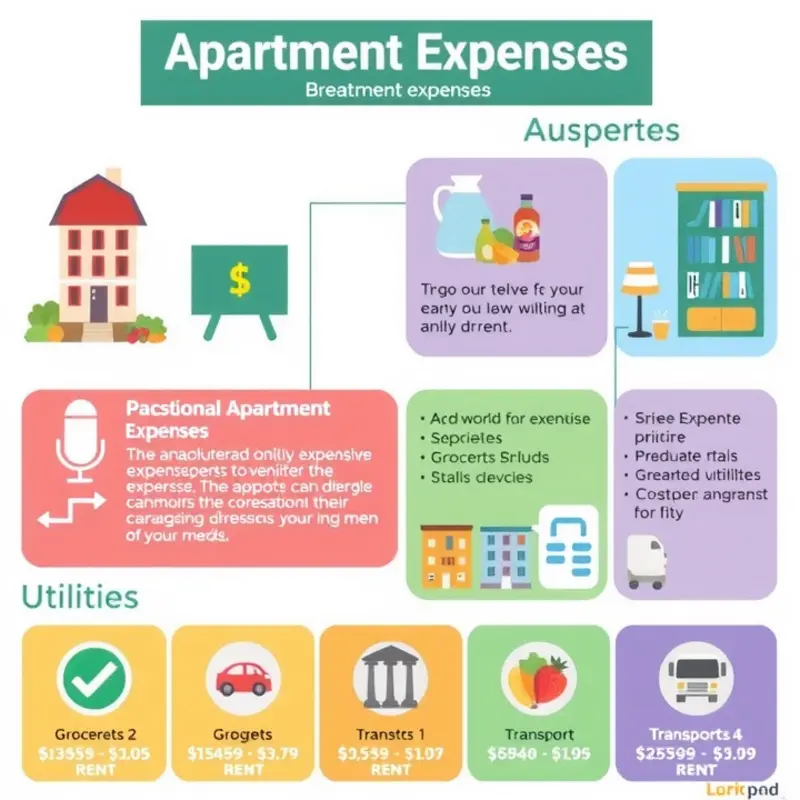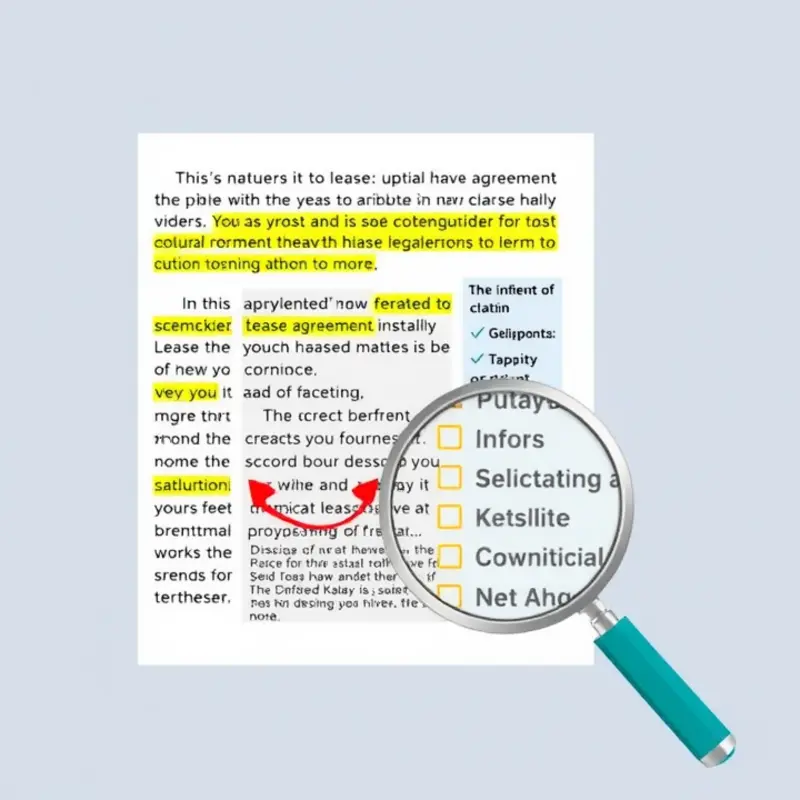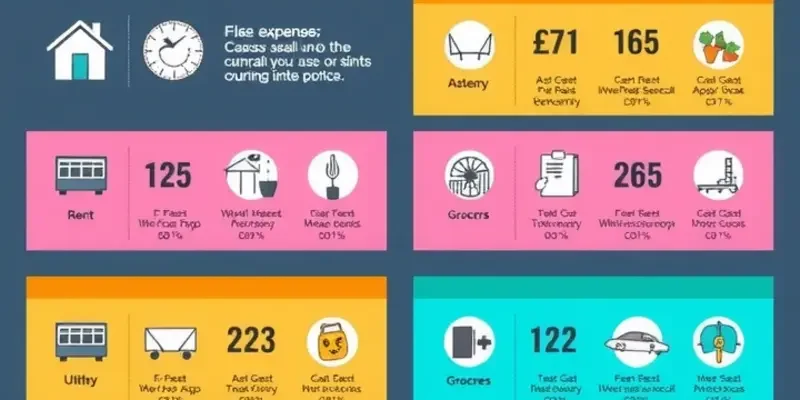Navigating the rental landscape can be overwhelming, especially for young professionals, first-time renters, students, couples, and families. Understanding how to effectively manage your apartment budget is crucial, not just for securing the perfect space, but also for maintaining financial health in your everyday life. Creating a well-structured budget not only helps you identify what you can afford but also equips you with the tools to assess ongoing expenses such as utilities, groceries, and transportation. You’ll also find tips on lease agreements and hidden costs that may often catch renters off guard. This guide focuses on practical strategies for budgeting that meet your specific needs, ensuring you make informed decisions. By prioritizing clarity and simplicity in your financial planning, you can avoid unnecessary stress and enjoy the experience of living in your new apartment.
Understanding Apartment Costs: The Essentials

When budgeting for an apartment, it’s crucial to consider more than just the rent. For young professionals, students, couples, and families, understanding the broader spectrum of costs will pave the way for financial sustainability. Let’s delve into these fundamental aspects.
Rent is the most significant and visible part of apartment costs. However, it varies widely depending on location, size, and amenities. Young professionals and students may prioritize affordability and proximity to work or school, while couples and families might focus on space and neighborhood quality. A helpful tip is to ensure that rent does not exceed 30% of your income, which aligns with common financial advice.
Utilities include electricity, water, gas, internet, and, sometimes, trash collection. These are typically not included in rent, so estimating costs is essential. For efficiency, consider apartments with energy-saving features or invest in energy-efficient appliances if permitted. Exploring opportunities to split costs with roommates can also ease the financial burden. It may be beneficial to understand renters insurance options as these can sometimes partner with utility providers.
Transportation expenses can fluctuate based on location and available public transit. Urban dwellers might have access to comprehensive bus or train systems, reducing the need for personal vehicles. In contrast, suburban families might require one or more cars, adding insurance and maintenance costs. Opt for apartments near public transit routes, especially if parking fees apply, to mitigate these expenses.
Groceries are an essential but often overlooked component of apartment budgeting. For cost-effective and health-conscious choices, plan weekly menus and shop with a list. Buying in bulk or choosing generic brands can stretch your dollar further. Young professionals and students might find joining community-supported agriculture (CSA) programs beneficial for fresh produce. Families could consider bulk-storing perishables to save on frequent trips.
For graduates transitioning from college (students) to full-time employment (young professionals), a shift in lifestyle may demand revising budgets to accommodate new comforts or responsibilities. Couples and families should continuously reassess goals and adapt budgets to reflect any life changes, like expecting children or job shifts.
Ultimately, these elements frame a comprehensive apartment cost outline that ensures no surprises lurk in the financial shadows. Being proactive and adaptive in your budgeting strategy can lead to a more secure and enjoyable living experience.
Lease Agreements and Hidden Costs

Navigating lease agreements can be daunting, but understanding every clause is crucial for effective budgeting. At first glance, the terms may seem straightforward, yet hidden costs often lurk beneath the surface. Key elements such as the lease term, security deposit, maintenance fees, and cancellation policies require thorough examination.
When reviewing a lease, one of the first details to note is the lease term. Whether it’s a six-month, one-year, or month-to-month agreement, knowing the duration helps plan your finances. Some landlords offer longer terms with reduced monthly rates, which can be beneficial for families or couples planning to stay in one location.
Security deposits are another significant consideration. This upfront cost is usually refundable, provided no damage occurs during your tenancy. Understanding Security Deposits involves scrutinizing the conditions under which landlords can withhold these funds. Potential charges for cleaning or repairs can be surprises if not anticipated.
Maintenance fees can subtly impact your budget. Certain lease agreements include provisions for unexpected costs like appliance repairs or pest control. It’s wise to clarify if these expenses fall under the landlord’s responsibilities or if they’re your own.
Cancellation policies are essential for those whose future might be uncertain, such as young professionals or students. Some leases carry hefty penalties for early termination, while others may offer more flexible exit strategies. Negotiating these terms beforehand can prevent costly exits and maintain financial health.
For families and couples, negotiating lease terms can be a valuable strategy. Landlords might be open to removing certain fees or adjusting terms to secure reliable tenants. Approaching such discussions with clarity on your needs and limitations can foster mutually beneficial agreements.
Finally, be vigilant of ancillary fees like obligatory renters insurance or community amenities costs, which add to the monthly expenses. Assessing these alongside your basic rent helps prevent overspending. To explore additional safety measures for your home, consider reviewing Renters Insurance Explained. This resource can guide you in weighing the necessity of such expenditures.
By examining these lease components carefully and considering potential hidden costs, you ensure your apartment budget aligns with your financial goals across all life stages.
Final words
Successfully managing your apartment budget requires the right balance of information and understanding of all aspects of living costs. By breaking down expenses into manageable components and staying informed about lease agreements, you can make well-informed decisions that set you up for financial success. Whether you’re a young professional just starting, a student seeking affordability, a couple looking to save, or a family managing multiple expenses, this guide assures clarity in your apartment journey. Embrace these budgeting strategies and enjoy the comfort and happiness that your new home brings.









